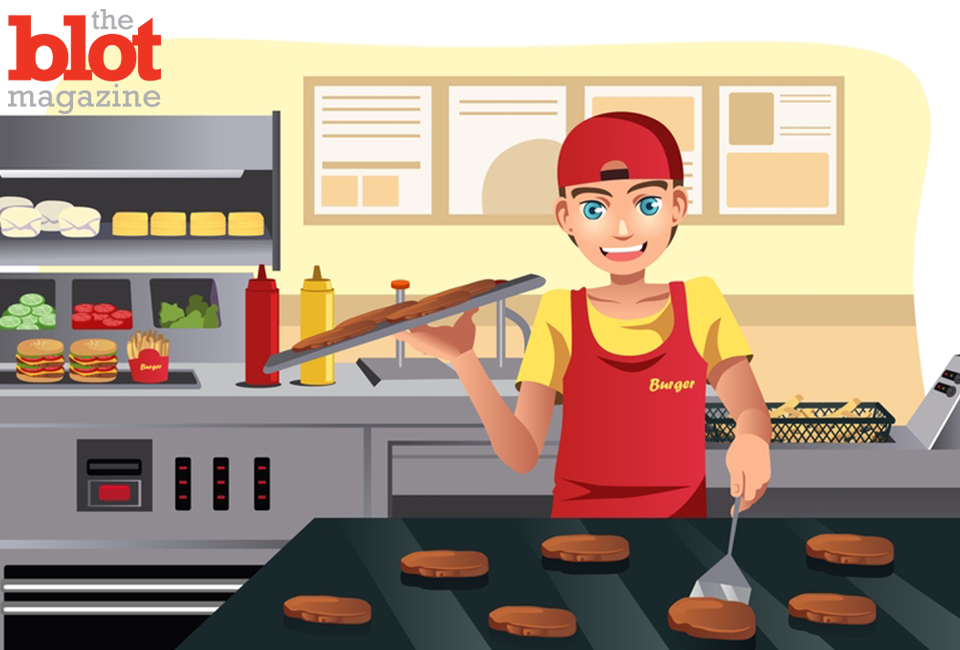
Back in Arkansas, when I turned 16, my dad told me to go get a job.
We came from a middle-class family. I suppose I really didn’t have to get a job, but, my dad made it clear that it wasn’t really a choice for me.
For a pimply, skinny white teenager in suburban Little Rock, your options for employment were slightly limited. You were either bagging french fries, scooping ice cream or sacking groceries. I opted for bagging french fries at McDonald’s Restaurant #2872. I was certainly not the first, or the last, to turn to the restaurant giant for employment. Business Insider estimates that at least one in eight Americans have worked at McDonald’s at some point in lives.
Over my three-year tenure under the Golden Arches, I graduated from bun toaster to cashier to the guy that did the children’s birthday parties. A cherry post to be sure. And when people ask me about my time there, you know, when we’re all standing around at parties going around telling everyone what our first jobs were, I tell people the experience certainly made me a Democrat (though I have since suspected this was my father’s intention all along). What did I mean by that? Well, I was a snot-nosed teenager basically doing a menial job with minimum effort for some spending money. But I was working with plenty of people for whom that was their job. That’s how they provided for kids, for families. I recall seeing a coworker on his day off in Wal-Mart, he was wearing his employee uniform, quite possibly because that was the only good set of clothes he had. The whole experience — the early mornings, the late nights, the dealing with a whole spectrum of citizens I may have never had contact with — instilled in me a sense of empathy I might have never gained otherwise.
In the years since my departure, fast food, and, in particular, McDonald’s, has taken a string of hits. The American temple to cheap burgers and salty fries posted staggering profit losses this year as Americans are slowly turning to fresher, healthier offerings. Also, the brand itself is suffering from a tremendous image problem, as the profits McDonald’s does rake in are on the backs of poor, overworked employees making a wage that no one in America could possible live on. Finally, these workers have had enough and are organizing.
But is it too late for fast-food workers? Some economists say no.
Recently, The New York Times profiled fast-food workers in Denmark, where at $20 an hour, workers are paid almost more than double that of their American counterparts. With that hefty hourly rate, has the economic sky fallen in Denmark? No. Have Burger Kings and McDonald’s been forced to close their doors? Not hardly.
The article quotes John Schmitt, economist at the Center for Economic Policy Research, a liberal Washington think tank. Schmitt argues that when looking at Denmark, you can see “that it’s possible to run a profitable fast-food business while paying workers these kind of wages.”
The article profiles two employees — Hampus Elofsson, a Dane, and Floridian Anthony Moore. Elofsson, making $20 an hour, is paid up on his rent, had enough leftover to socialize with friends and even manages to save a little, too. Moore’s experience is a different story. “Sometimes, I ask, ‘Do I buy food or clothes?'” he said. Continuing, he noted that “if I made $20 an hour, I could actually live, instead of dreaming about living.” Moore makes around $9 an hour.
Many suggest that in European socialist counties like Denmark, it’s easier for workers in low-wage jobs to get by. In Denmark and countries like it, workers are guaranteed scores of rights and a generous social safety net that many Americans can only dream about. Everything from universal healthcare to free college tuition.
Though, perhaps Americans should consider those things, too.
Brock Thompson is a contributing journalist for TheBlot Magazine.





